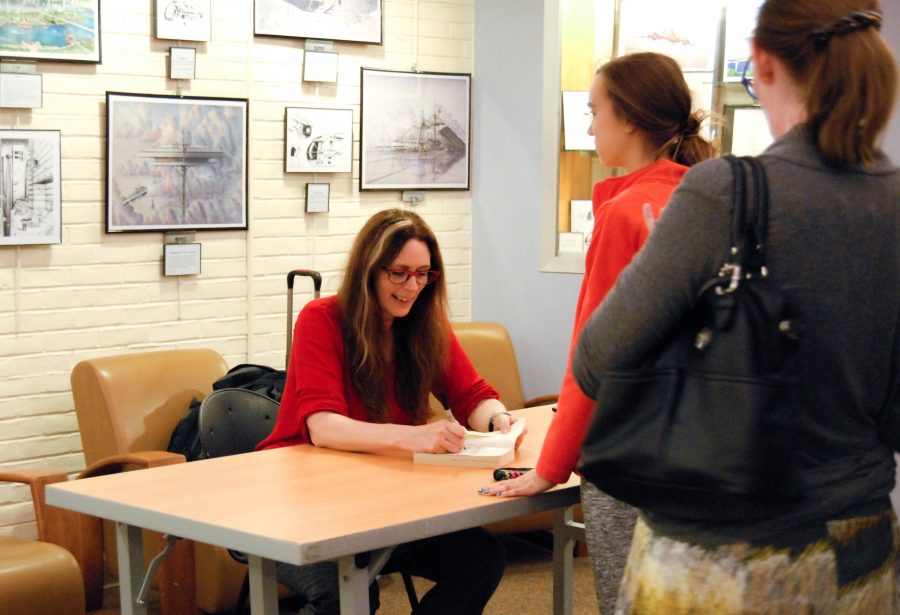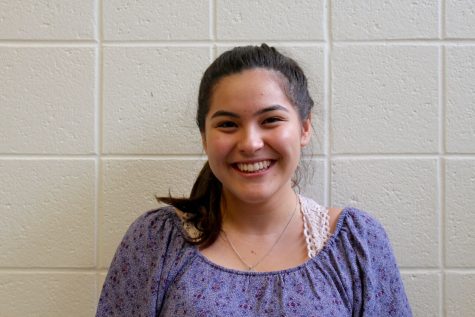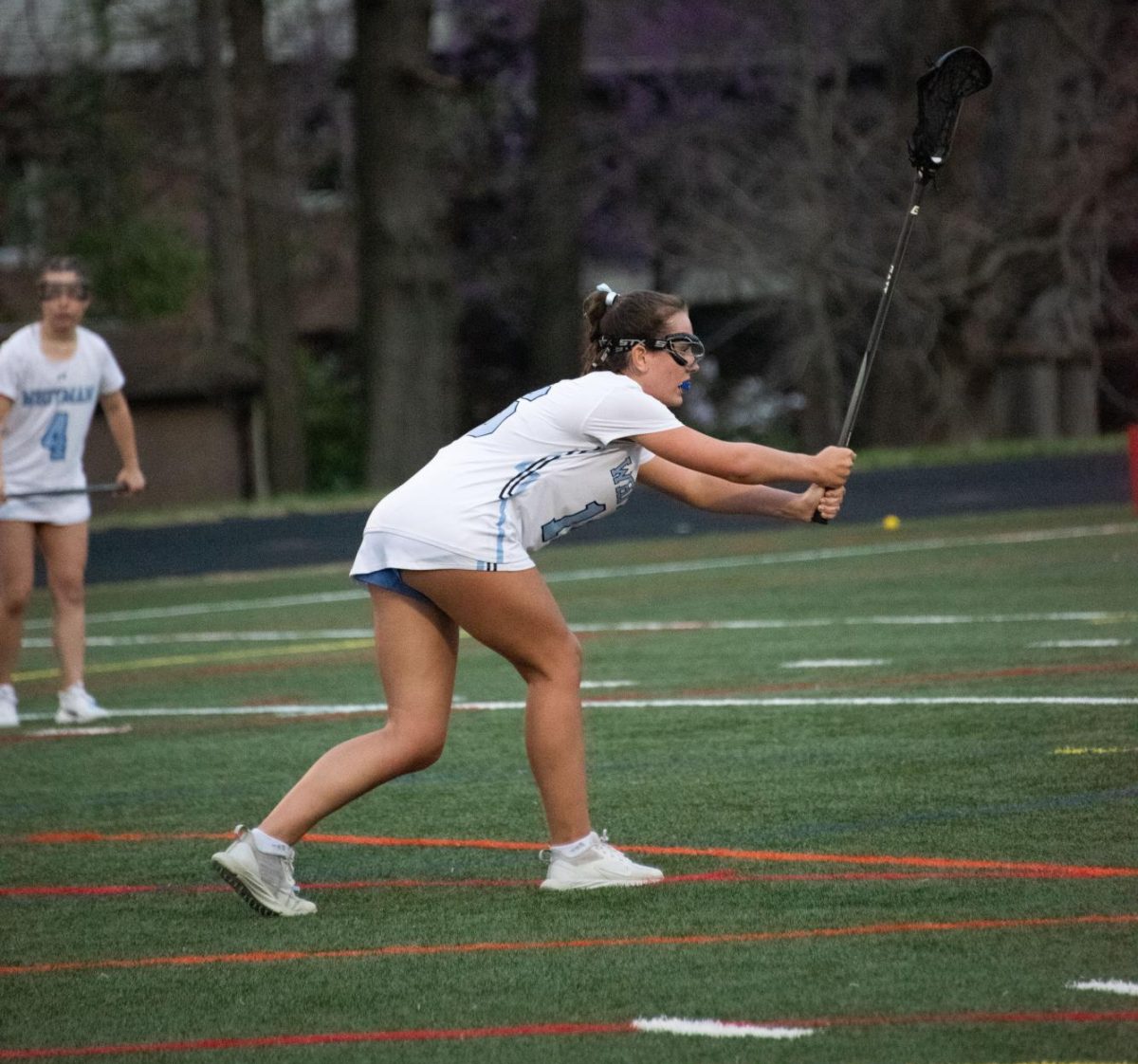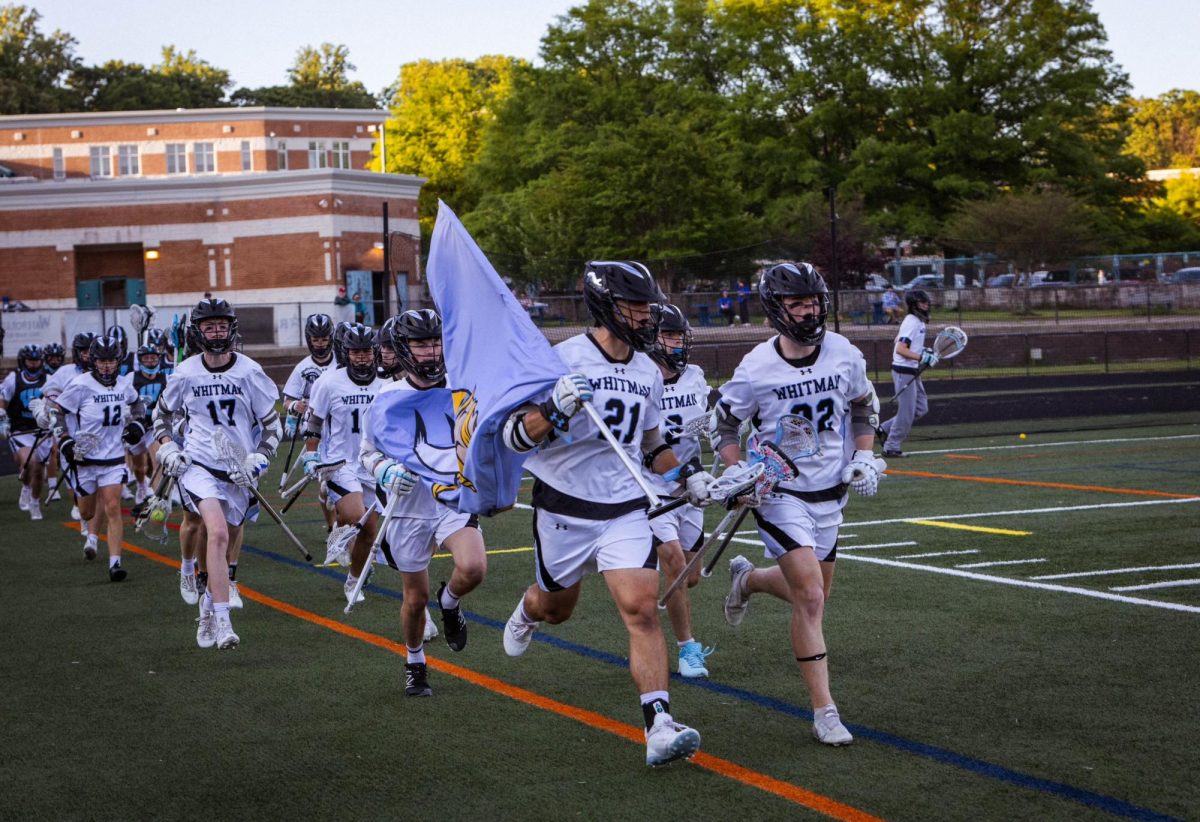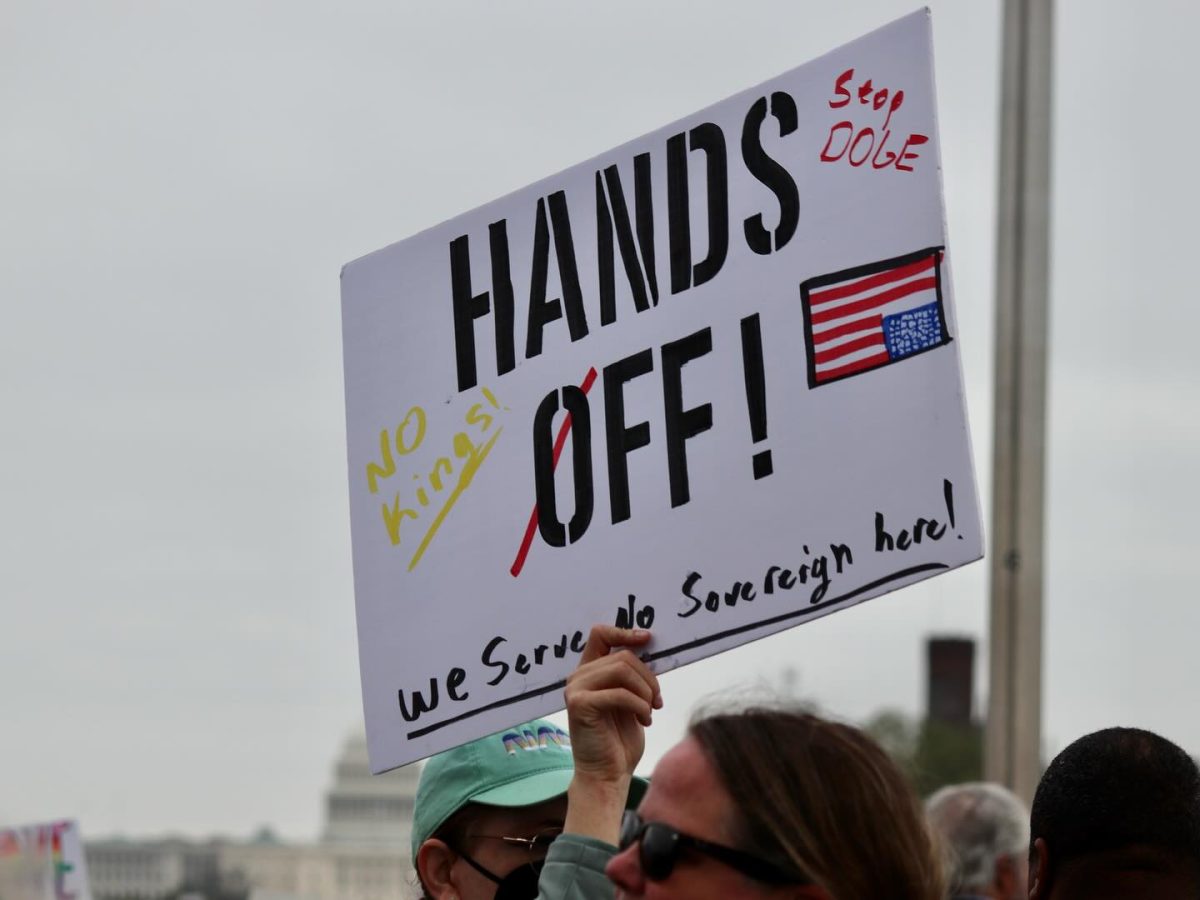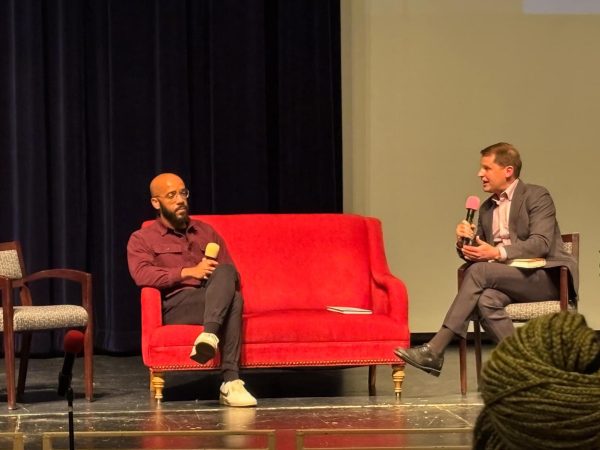Q&A with author Laurie Halse Anderson
Author Laurie Halse Anderson visits Bethesda library Oct. 17 to discuss and promote her new book, Ashes, the third and final segment of her historical fiction Seeds of America trilogy. Photo by Ashley Jiang.
November 18, 2016
Laurie Halse Anderson is an award-winning author known for shining light on difficult, contemporary topics.
She’s written in varying genres for different age groups, but is best known for her young adult novels. One of her first novels, “Speak,” is about the rape and social isolation of a high school girl and is taught to freshmen at Whitman. She recently published the final installment to her Seeds of America trilogy, a historical fiction series revolving around the experiences of a young slave during the American Revolution. The Black & White sat down with Anderson during a stop on her book tour at Bethesda Public Library Oct. 17. The following interview has been edited for space and clarity.
Black & White: Many of your contemporary young adult novels have been included in school English curriculums; what do you hope people take away from these books when they have the chance to read and analyze them as a class?
Laurie Halse Anderson: I have to admit, whenever I speak to English teachers at conferences, I try to ask them to ease off on beating you guys with symbolism and analysis because that’s not why I wrote the book. If I did my job as a writer, then whatever you’re meant to get out of that story is going to filter through to you at a conscious or unconscious level. I know so many kids who loved reading when they were in third or fourth grade, and then they get to middle school and they grow up thinking symbolism and analysis is all books are supposed be. And they don’t want to read that. So my most important job in the world is to write stories that will keep children reading.
Beyond that, though, for the books that I write for teenagers, the overarching thing I’m trying to do is to let people know that they’re not alone. Some kids do get to age 18 without having dealt with trauma. Not many. Everybody has to deal with something by the time you’re 18, and you are surrounded by people who are dealing with something. When I look at a lot of adults who are not functioning in a healthy way, often the root of their pain goes back to things that happened to them in childhood and adolescence they just didn’t have support for. So they just kind of stuffed it all down, and that wound up harming them. When we tell stories about life the way it is, if you see a reflection of your experience, that’s giving you permission to go, “I’m not alone.” And sometimes that leads readers to go and get help, or talk to somebody about it. Sometimes I just get the letters and emails saying, “I’m not alone.” And that means the world to me.
B&W: A lot of the topics you write about are the unspoken issues that parents and schools don’t really talk about; how do you think we, as a nation, should be addressing those topics?
LHA: Acknowledging that it’s a hard topic is the first step to being able to have the conversation. I think that’s the role of the artist in society: to point out these immaturities in the culture at large. Some people are going to do it with a hammer over the head. Other people are going to do it with a gentle push in the back. Though that’s certainly not my mission by any long shot, I think by default some of my books do that. That’s being an artist: talking about the truth on the ground that many adults are struggling with and many kids are suffering from. The telling of those stories is what’s going to heal us and lead us forward.
B&W: Some people have been vocal about their opposition toward you tackling issues such as eating disorders, suicide, and sexual assault in books geared towards teenagers. Your books have even been banned in schools before; why do you think people’s reactions are so volatile toward addressing these topics?
LHA: I know why. Parents are afraid. They’re afraid of a culture they can’t control. And they don’t know how to talk to their kids about these subjects, because their parents didn’t talk to them. When you look at it from that perspective, it’s much easier to understand. I can respect a parent wanting to protect their child, and I can honor their struggle and frustration. But I’ll tell you, I’ve raised four kids too, and I’ve talked to over a million at this point. You don’t do your kids any favor when you hide the truth from them. These parents think that they’re protecting their kids when in fact, what they’re doing is raising their students in ignorance. And teenagers not really getting how the world works become very vulnerable.
B&W: The main character of the Seeds of America trilogy is African American; what kind of preparation and research did you do in order to write about a race you aren’t?
LHA: I believe that artists are supposed to write outside their experience. That’s how we get to know the world. I think though, especially if you’re a white person, the first thing to recognize is that you know nothing. And you have to walk into this project armed with humility.
I did years more research than I would’ve done had the characters been white, and I’ve had many black friends and academics and experts read the book for representation issues. They’re sometimes called sensitivity readers: people whose expertise is how African American children are being represented, especially by a white author. I think that white people have a terrible history of appropriating culture and trying to make a buck off of it, and I was trying to raise the bar, not only for historical accuracy, but also for respectful representation of people who don’t look like me.
Slavery was America’s original sin. All Americans have been hurt by it. But the fact that we don’t talk about this today is why we don’t know our history. So I really feel called, as an American, and as a white American, to understand our history, and then to find the respectful, appropriate way to try to tell it.
B&W: When it comes to your books, did you struggle making history relatable? And do you feel that the recent popularity of the musical Hamilton has allowed people to open up more to the subject of history?
LHA: No, actually–I’m really good at it. I don’t believe in false modesty; I am the best writer of historical fiction that this generation has seen. Because I work harder than anybody. There are some good ones out there, but nobody else I know has put the time into it. I’ve been working on this for twenty years.
God bless Lin-Manuel Miranda [creator and star of Hamilton], because he just made my job so much easier. He and I are on that same wavelength. He’s taking the American revolution, and with his genius music and beats and poetry and casting changes, he’s making it relevant to our world today. He opened up that door and got kids singing the songs and interested in what happened. With Hamilton kind of echoing across the country, the difference in being on tour for Ashes is that people are more open to the stories, and that’s a blessing. For me and for everybody. Because our country cannot be what we promised ourselves it would be in 1776 until we understand our history.



